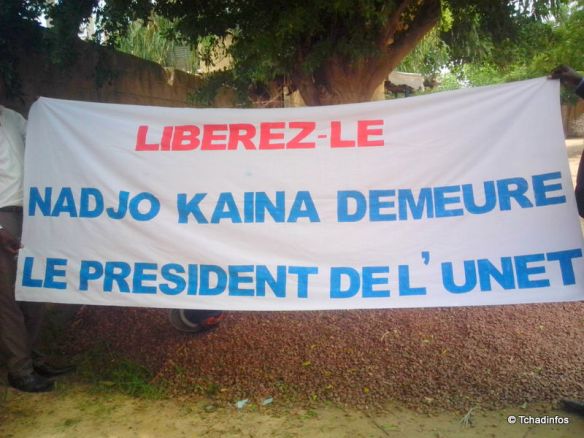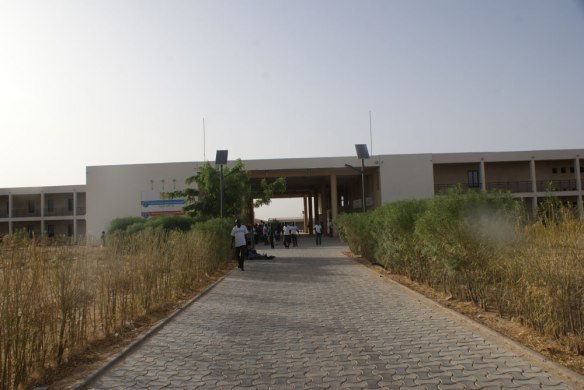 Imagine that the Dutch state would withhold student stipends for more than six months without clear reasons. Protest actions would follow, or not? Students would take to the streets… or in fact, I have no idea what would happen in the Netherlands, because we cannot imagine such a situation. In Chad it happens, and worse: it has led to the arrest of the president of the students’ union, whose case will go to trial on 28 August. But who knows and who reflects on it? Most media are concerned with IS, Boko Haram and other large issues now, they do no longer inform us on these violations of human rights, only some internet reports appeared in short notes (see for instance the website of Radio France International or the website tchadinfos), but these are not read by the larger public and certainly not by Dutch citizens. I think we should know.
Imagine that the Dutch state would withhold student stipends for more than six months without clear reasons. Protest actions would follow, or not? Students would take to the streets… or in fact, I have no idea what would happen in the Netherlands, because we cannot imagine such a situation. In Chad it happens, and worse: it has led to the arrest of the president of the students’ union, whose case will go to trial on 28 August. But who knows and who reflects on it? Most media are concerned with IS, Boko Haram and other large issues now, they do no longer inform us on these violations of human rights, only some internet reports appeared in short notes (see for instance the website of Radio France International or the website tchadinfos), but these are not read by the larger public and certainly not by Dutch citizens. I think we should know.
Student stipend
The students no longer receive their monthly allowance (about 30.000 FCFA per month, which is 50 Euros); some haven’t received it for six months and others not for nine months. Although it is not a lot of money, the students can – sort of – make a living out of it. The stipend used to be 25.000 FCFA, but since 2012, after students’ lobbying, 5000 FCFA was added to compensate the expensive living conditions in Chad. So the students still claim an outstanding payment of six to nine months.
Agitation
To reinforce their protest, the students went on strike. They also planned for a manifestation. The national student organization (UNET, Union National des Etudiants Tchadiens) took the lead. A meeting to discuss the difficult situation of the students was held on Wednesday 12 August outside the university campus, despite an interdiction by the authorities (police). The students were arrested that same day. The group (about thirty students) was released one day later, except the president of UNET, Nadjo Kaina. He found himself accused of agitation and preparation of a movement against the government. He should have been judged on 21 August, but his trial was postponed to the 28th. During the court hearing on 21 August, UNET representatives were not allowed access. According to the president of UNET section Doba, spokesperson for UNET on this case, there was simply not enough evidence. Nevertheless, a request for a temporary release of the president was not granted. So he is in jail, waiting to be heard. The Doba president concludes: ‘This is a very arbitrary case and certainly with political motives’ (see also the article on Tchadinfos).
‘Terrorism’
We can only guess what is happening. Certainly the students should have the right to protest against the failing of the state system. They have a right to their monthly allowance. In these times of Boko Haram, suicidal and other attacks it seems that the government explains everything that happens as a form of ‘terrorism’. The new law against terrorism clearly states that the government is allowed to arrest anybody who is involved in agitation against the state or whatever. Any manifestation or meeting will be interpreted as such and arrests are allowed. Another factor explaining this case might be the March youth protests against the wearing of helmets (see earlier blog post), when the youth did show itself an important force and the government finally had to give in to their protests. As one of my colleagues from university in N’Djamena explained: ‘the government is afraid of these students and youth protests. They have become a real force in society. Make sure that students are the most intelligent people who are able to organize and reason. They should be heard and allowed in a dialogue, but that is not the Chadian way: oppression is the only (and lonely) answer’ (free translation of discussions with Chadian colleague between September 2014 and February 2015).

